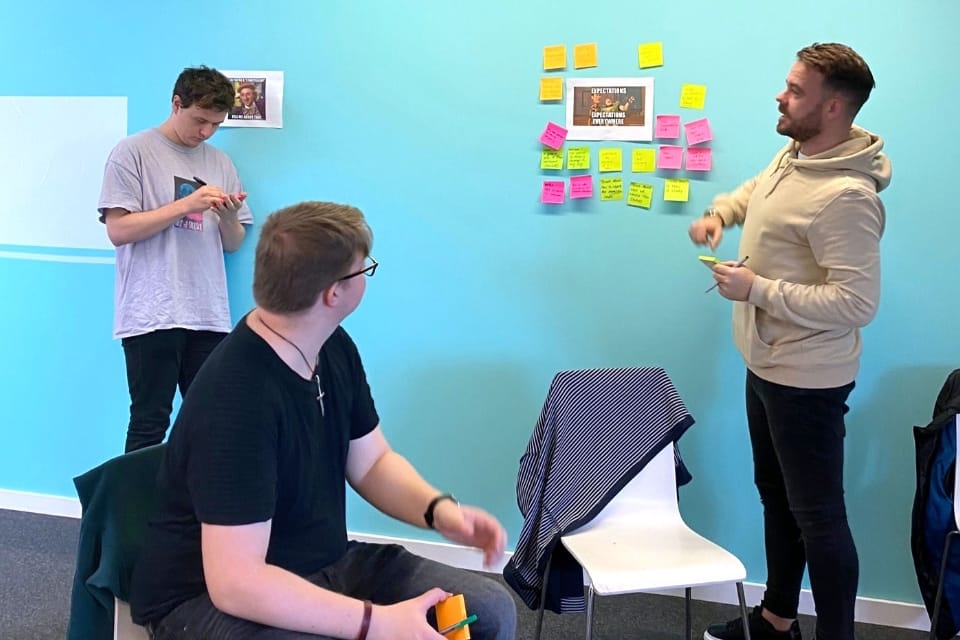Bloomberg to The Centre for Civic Innovation story so far!
Since the beginning of the summer The Centre for Civic Innovation has been working on the Bloomberg Philanthropies 2021 Mayors Challenge, a global innovation competition uncovering the most transformative urban solutions to emerge in response to the COVID-19 pandemic.
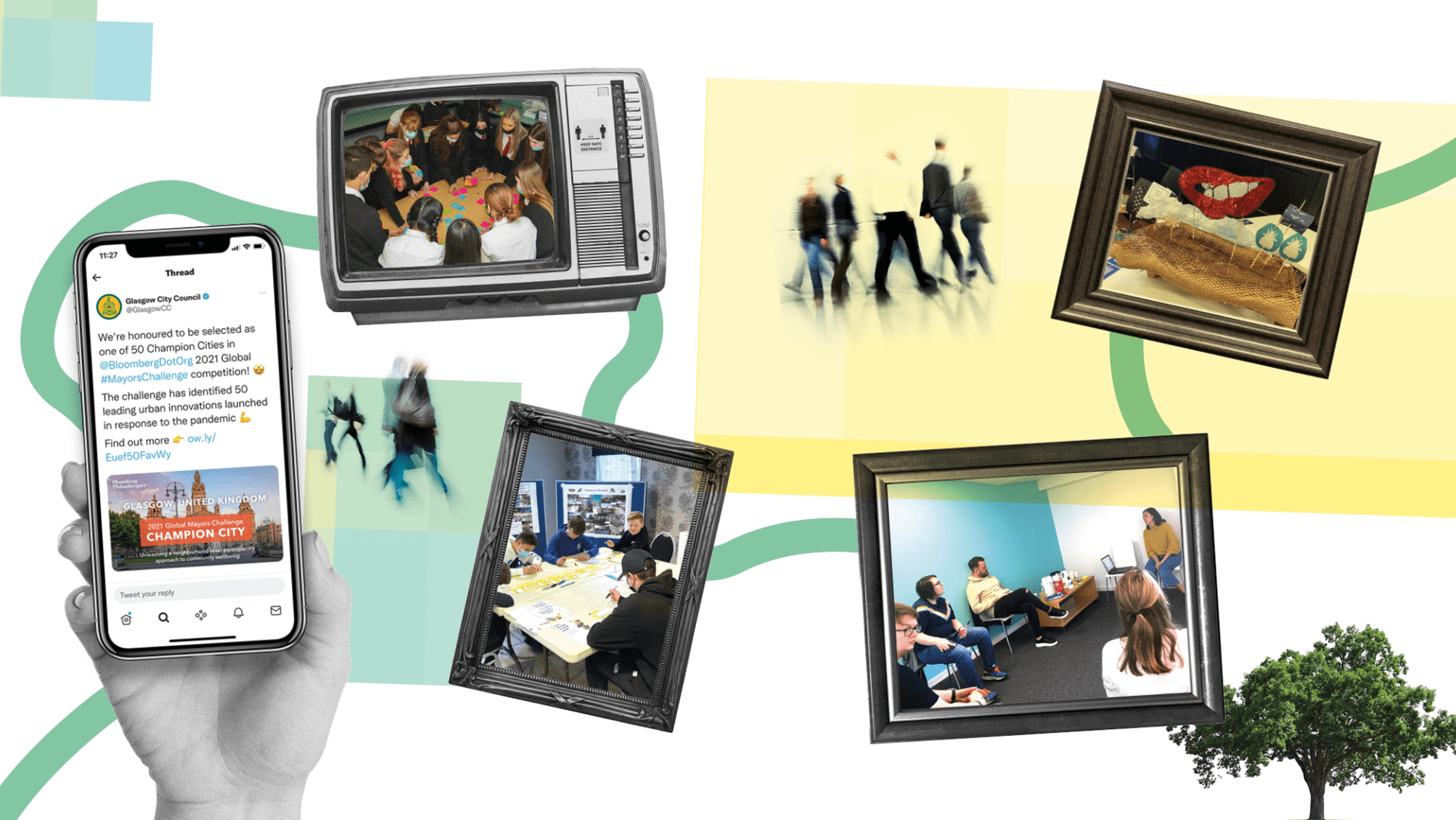
Glasgow set out its initial idea to tackle the societal challenges that most affect our citizens by unleashing a neighbourhood-level participatory approach to community wellbeing. We want to create a network of citizen-led creative hubs using design, data and storytelling to solve our challenges together for the common good and create a city in which power is directly transferred to people. We will form networks of people-led collaborative, creative communities. An ecosystem delivered in partnership. Empowered neighbourhoods where trust, ownership, creative problem solving and pride are the norm. Local creativity and skills hubs will provide tools to unleash power locally generating and implementing new ideas.
It will create the conditions for local government to embed people at the heart of services - addressing the disconnect between people and policy that causes disadvantage and inequality.
Glasgow is in the most difficult social and economic position in a generation with 26% of children living in relative poverty. City challenges also include poverty and food poverty, homelessness, health and life expectancy, employment, social mobility and access to social infrastructures like places, spaces and services. City challenges affect our poorest citizens disproportionately meaning we must find new, creative and innovative ways to solve our challenges. Citizens want action. They want neighbourhoods they can be proud of where children have better life chances than them. They have their own ideas and solutions. But, less than 1% of citizens are currently actively involved in true models of co-design.
We saw the Mayors Challenge as the best way to test this approach and with this idea Glasgow was selected as 1 of 50 champions cities out of more than 630 applications from 99 countries, in the first-ever Global Mayors Challenge. We have been working with our Bloomberg coach through a series of sprints to outline our assumptions, validate, prototype, ideate and improve our Mayors Challenge idea ahead of re-submitting at the end of October.
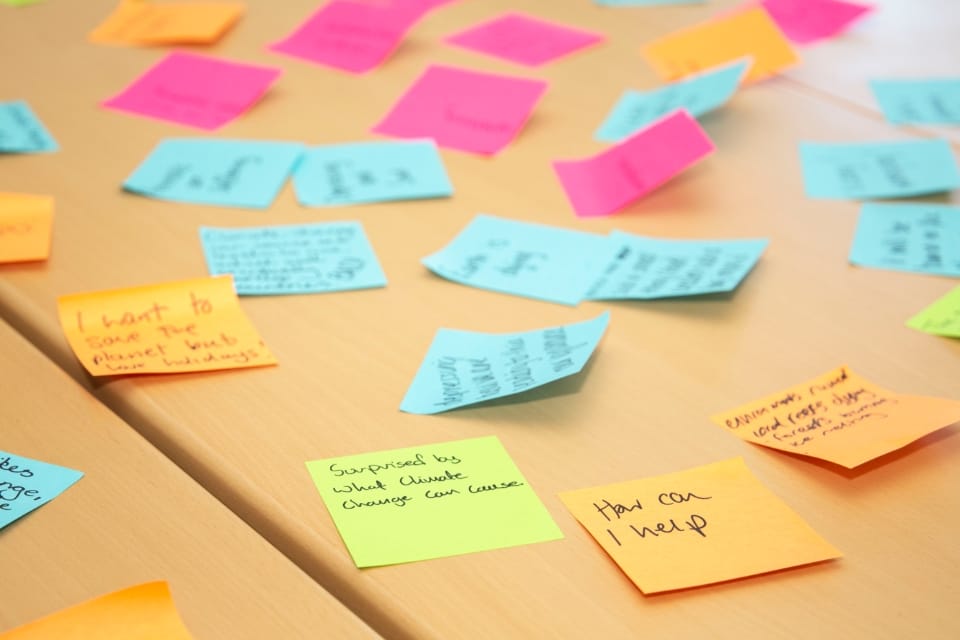
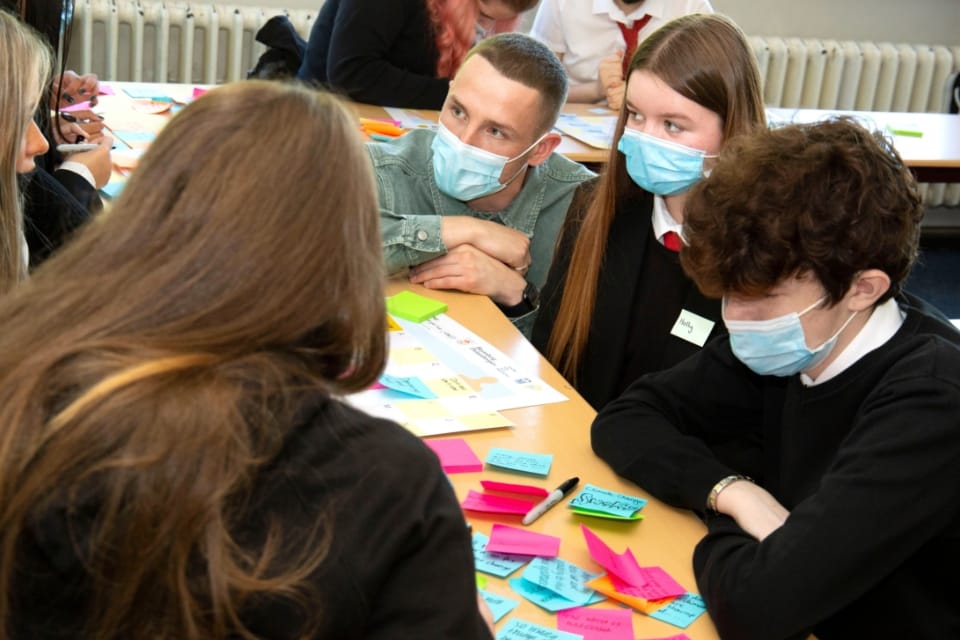

Based on our learnings that design skills are effective when embedded directly with local citizens, we prototyped with partners a series of new ways to communicate, design, generate ideas, creatively solve problems, share and learn with people and whether a local network of like-minded people could support these new ways of working.
Our first proposition was the Leaders Challenge Design Jam, allowing us to use design, share skills and learn together in collaboration with our partners the Service Design Academy. We ran two sessions with two schools in Glasgow that focused around climate change and what it meant to the students. This enabled us to test design jams as a method to engage with people, understand their participation, what they need and care about, share design skills and create a basis for evaluation on engagement with the design process. The students were highly motivated by a different approach in the classroom with over 75% of all attendees involved saying that they would like to be involved in future design jams.
Our next jam focused on turning an idea from a local person in Greater Pollok that involved the development of a skate park for local children and turning that idea into a reality. We created a safe place, welcome to all which allowed the young people to be enthusiastic and creative in their idea making for what a new skate park in the community could look like. The event was a success, not only in terms of the creativity on display but in the numbers that showed up, we had a 103.8% attendance, for an in-person event, during these times is a brilliant turn out. It also gave us another opportunity to test co-designing methods with the community and support them to develop ideas about their own neighbourhood. We are also looking at how we can embed design skills in the community.
Lastly, we worked on shaping a common language as it had become evident through work undertaken that to collaborate we need to understand each other, and because of the different terminology used we often exclude people whilst trying to connect with communities. It has been evident through work undertaken to date that to work together and collaborate we need to understand each other, and because of the different languages used we often don’t reach, exclude or misunderstand each other.
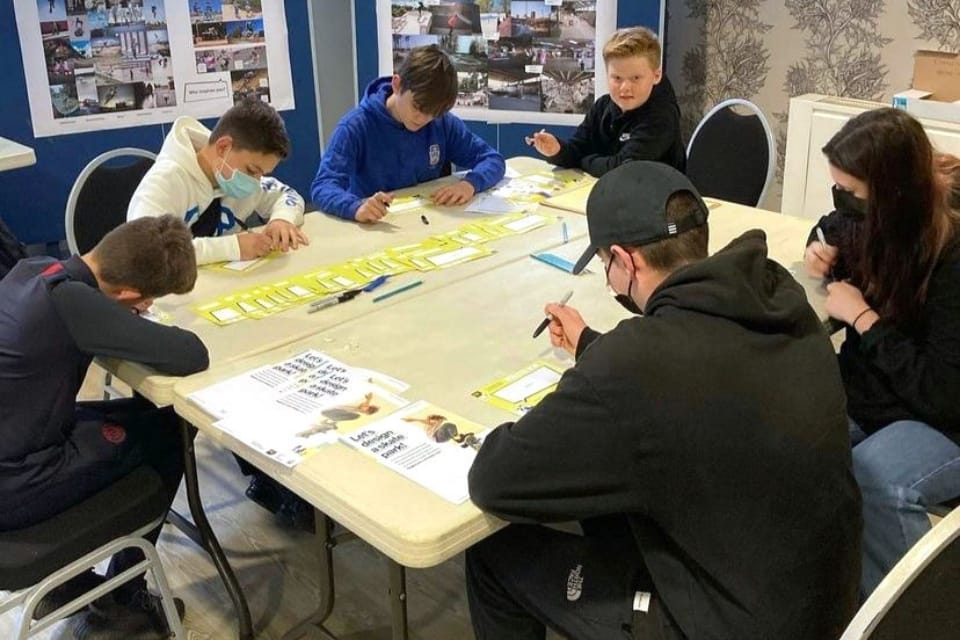
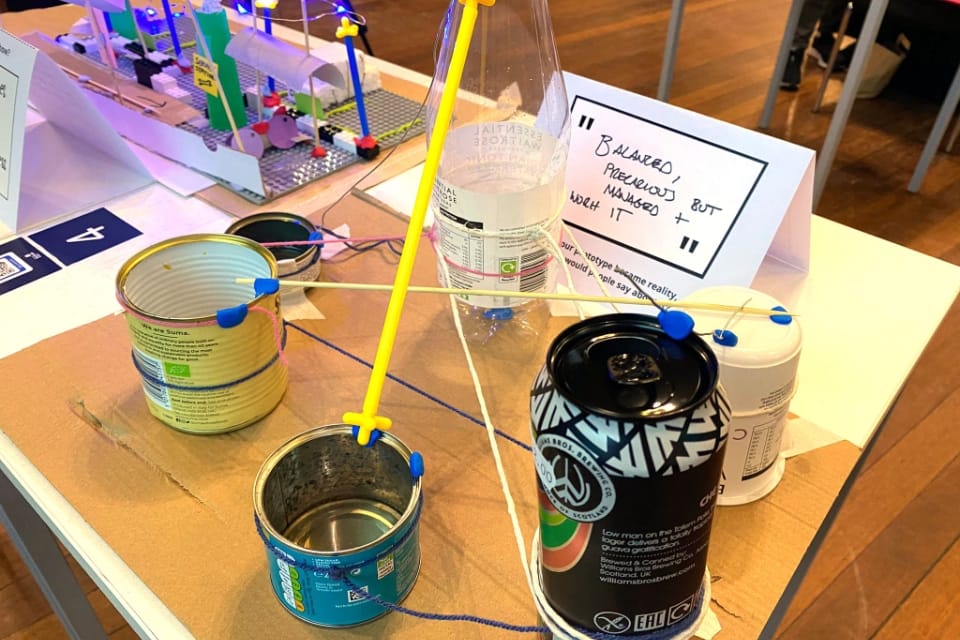

During these sessions We learned that people want to be involved but, on their terms, and on matters that impact their daily lives. It is important not to reinvent the wheel but build on successes rather than force a pre-determined agenda on communities, to truly collaborate, we need to understand each other, and because of the language used, we often don’t reach or can exclude people whilst trying to connect. Developing a common language is essential in making the ecosystem accessible to all so all voices are heard.
These three sessions have been fundamental in shaping our bid and helped us to understand that people want to be involved but, on their terms, and on matters most close to their heart. However, they are part of a wider network of people-led collaborative, creative communities. An ecosystem delivered in partnership.
Although this is the end of our Journey as part of the Bloomberg Mayors Challenge, it’s the beginning of an exciting new story for The Centre for Civic Innovation and the birth of a creative ecosystem in Glasgow. Since the deadline passed we have continued to build relationships, to test and build on our ambitious plan, planning and facilitating a number of events. We worked with young people at COP26 to discuss what the future could look like as we continue to tackle the climate crisis. We also co-hosted a family food jam exploring the connections between the food we eat & the planet we live on. We saw the Mayors Challenge as the best way to test this approach and from the lessons we’ve learned we can continue to build this approach and delivering targeted services with, not to, our citizens.
